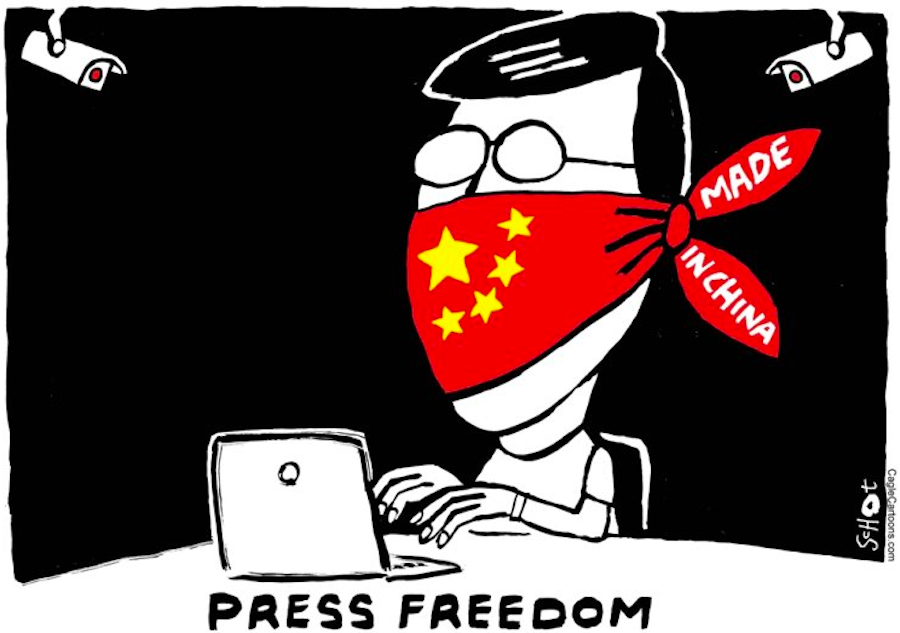In his conversation with BBC Radio presenter Sarah Montague in London after receiving Templeton Prize on 14 May, His Holiness the Dalai Lama expressed his strong optimism that freedom will definitely dawn in Tibet soon. Excerpts from the interview:
 Q: Your first home of course is Tibet and you have been living in India since you went into exile there. You’ve always said that you would expect for a hope that in some point of your lifetime Tibet might be free. Do you sill stay that?
Q: Your first home of course is Tibet and you have been living in India since you went into exile there. You’ve always said that you would expect for a hope that in some point of your lifetime Tibet might be free. Do you sill stay that?
His Holiness: Of course. Why not? Firstly, although when we became refugees many Tibetans felt it is only matter of years, within few years we might have the opportunity to return. Things are not easy, it may take decades. So therefore, right from the beginning our slogan is ‘hope for the best, but prepare for the worst’. Now fifty-three years have past, but during these years there were lots of changes in mainland China, particularly in the last 10 – 15 years. And it is still changing. After all, human values including democracy, open society, freedom of individual, are our basic rights. So, eventually, people’s understanding and awareness, and also economic condition will become better. I think these desires cannot be stopped. So things will change.
Q: What you look at what has happened in Arab Spring over the past year and you also look at 34 monks and nuns in Tibet setting themselves on fire to try to create awareness on what’s going on in Tibet. It does not look though as much is changing. It still looks as China is instransigent on this. I wonder why you are so hopeful now.
His Holiness: It is a very sensitive political issue, and since my complete retirement last year I do not make comment on political matters. Having said this, the Chinese government still keep secret the self-immolation incidents from the Chinese people. Few days ago, the Chinese government issued an English version of events making us scapegoats for the self-immolations in Tibet. But they never mentioned about these events in Chinese language because they are sensitive to their own people. If (Chinese) people know that then they will automatically raise questions, why? Then it is not easy (for Chinese government) to explain.
Q: You are 76 now. Can you ever imagine that you would be able to go back to Tibet at some point in your life?
His Holiness: I think at practical level my health is quite good. So I am expecting another 10, 20 years. So within that period, definitely things will change.
Q: Definitely things will change. But you have had no communication with the Chinese government. There is nothing on the face of it from what is being said.
His Holiness: At the government level, since the beginning of last year, there has been no contact. However, our contact with the Chinese people, mainly, not in the sense of public meetings or talks which we can’t, but with intellectuals, writers, some retired officials, we have quite close contacts. In the last few years, I have personally met over thousand Chinese, including students, professors, writers, businessmen. Some of them have very close link to leaders. I think, almost everyone when they have this understanding about the reality, are showing sense of solidarity. And then I have also met a number of Chinese Buddhists, I think several thousands. They are very very eager to learn and follow Tibetan Buddhism. So things are changing.
Q: And yet you have yourself talked of the fact that there was a plot to assassinate you by Chinese agents.
His Holiness: Yes, we received some information few years ago that some Chinese agents recruit some Tibetans, mainly ladies, carry some poison in their hair, scarf. We received that kind of information. Whether this is true or not, is impossible to cross check.
Q: People want you touch you and want you to touch them the whole time. Does it must make you think and stop supposing and be bit more fearful?
His Holiness: I think 99 per cent of people seemed to love me. So I always show as like their own brothers and sisters. But in the meantime my officials take some caution.
Q: Do you ever get angry what China is doing to Tibet?
His Holiness: No, never. No use. My anger towards my staff members if they make little mistake here and there, I burst.
Q: But to the Chinese government you never get angry.
His Holiness: No use. If I develop anger, suffer myself. It will not help our problem. For example, during the 2008 crisis and the 10 March, I felt experience almost like 10th March in 1959. Helpless, fear and anguish. Then I visualise about these Chinese officials who took these decisions and also Chinese leaders. With our practice of take and give, that is take their fear, anger, suspicions and give them my compassion, forgiveness. So that kind of practice is immensely helpful to keep my peace of mind. If I develop towards them, that anger will never bring harm on them but it will harm myself.









